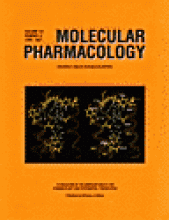Abstract
The effects of the non-tumor-promoting protein kinase C (PKC) activator bryostatin 1 and the PKC inhibitors staurosporine and UCN-01 were examined with respect to modulation of 1-[β-d-arabinofuranosyl]cytosine (ara-C)-induced apoptosis in human myeloid leukemia cells (HL-60) overexpressing the antiapoptotic protein Bcl-2. HL-60/Bcl-2 cells displayed a 5-fold increase in Bcl-2 protein compared with empty-vector counterparts (HL-60/pCEP4) but comparable levels of Bax, Mcl-1, and Bcl-xL. After exposure to an equimolar concentration of ara-C (10 μm for 6 hr), HL-60/Bcl-2 cells were significantly less susceptible to apoptosis, DNA fragmentation, and loss of clonogenicity than HL-60/pCEP4 cells. The protective effect of increased Bcl-2 expression was manifested by a failure of ara-C to induce activation/cleavage of the Yama protease (CPP32; caspase-3) and degradation of one of its substrates, poly(ADP-ribose)polymerase to an 85-kDa cleavage product. When HL-60/Bcl-2 cells were preincubated with bryostatin 1 (10 nm; 24 hr) or coincubated with either staurosporine (50 nm; 6 hr) or UCN-01 (300 nm; 6 hr) after a 1-hr preincubation, exposures that exerted minimal effects alone, ara-C-induced apoptosis and DNA fragmentation were restored to levels equivalent to, or greater than, those observed in empty-vector controls. These events were accompanied by restoration of the ability of ara-C to induce CPP32 cleavage and activation, poly(ADP-ribose) polymerase degradation, and inhibition of colony formation. Western analysis of Bcl-2 protein obtained from overexpressing cells treated with bryostatin 1, staurosporine, or UCN-01 revealed the appearance of a slowly migrating species and a general broadening of the protein band, effects that were insensitive to the protein synthesis inhibitor cycloheximide. Alterations in Bcl-2 protein mobility on sodium dodecyl sulfate-polyacrylamide gel electrophoresis were reversed by treatment of lysates with alkaline phosphatase or protein phosphatase 2A; actions of the latter were blocked by the specific phosphatase inhibitor okadaic acid. In vivo labeling studies of Bcl-2 protein demonstrated increased incorporation of [32PO4]orthophosphate in drug-treated cells. Last, phosphorylated Bcl-2 failed to display decreased binding to the proapoptotic protein Bax. Collectively, these findings indicate that bryostatin 1, which down-regulates PKC, and staurosporine and UCN-01, which directly inhibit the enzyme, circumvent resistance of Bcl-2-overexpressing leukemic cells to ara-C-induced apoptosis and activation of the protease cascade. They also raise the possibility that modulation of Bcl-2 phosphorylation status contributes to this effect.
- The American Society for Pharmacology and Experimental Therapeutics
MolPharm articles become freely available 12 months after publication, and remain freely available for 5 years.Non-open access articles that fall outside this five year window are available only to institutional subscribers and current ASPET members, or through the article purchase feature at the bottom of the page.
|






